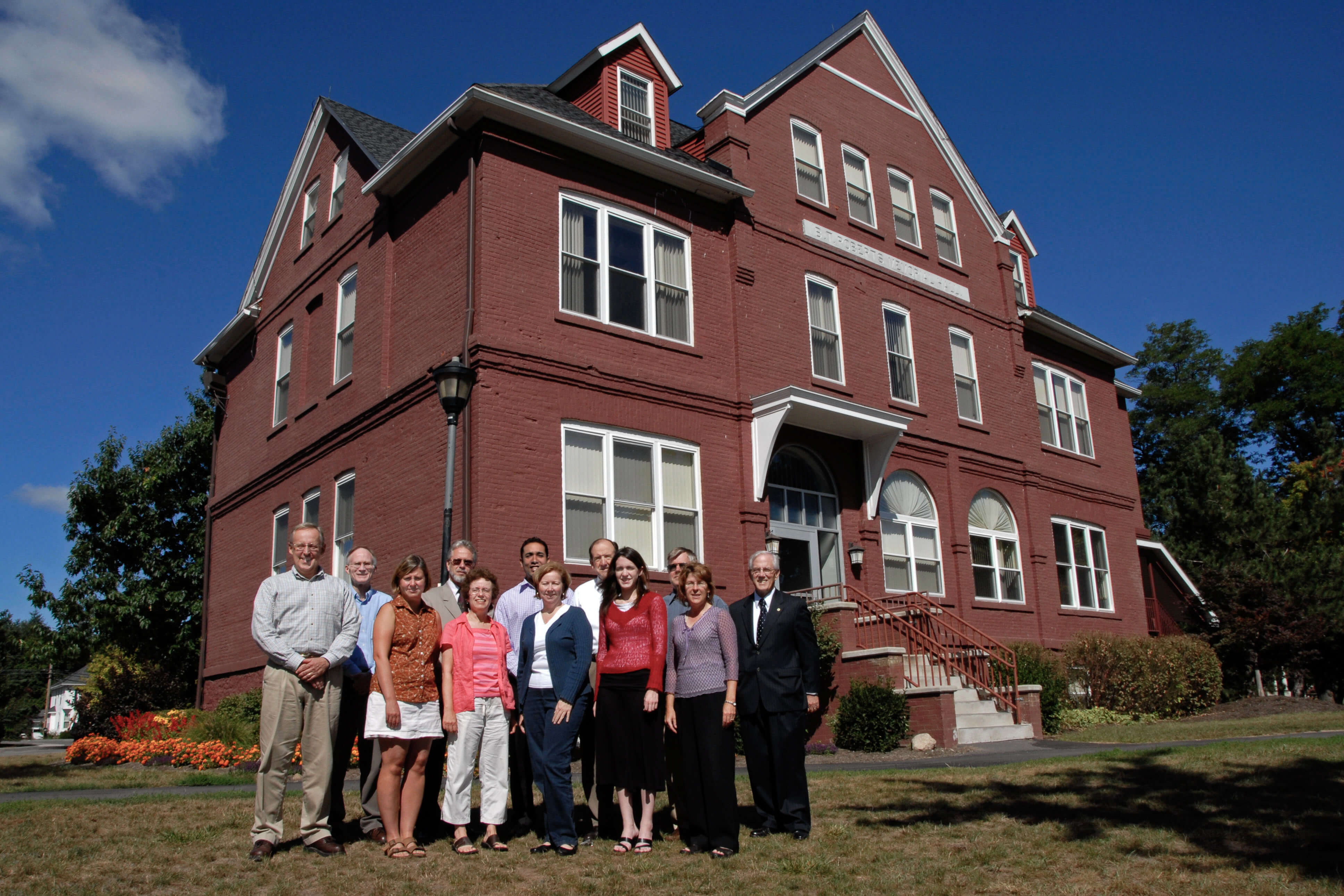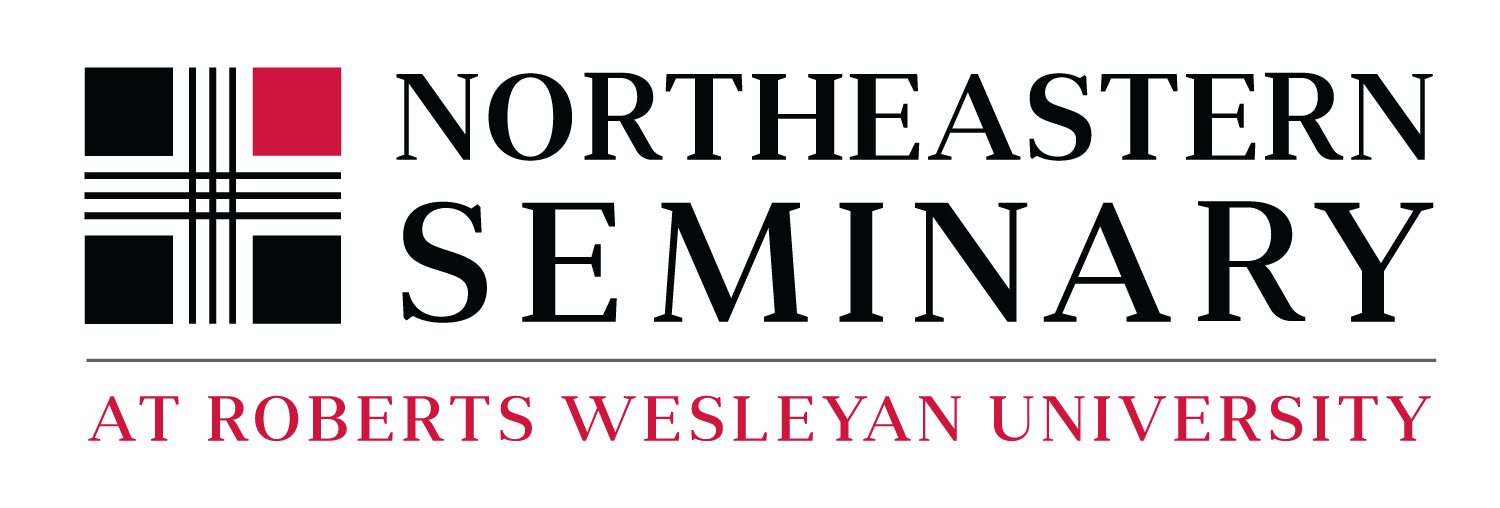Where society builds up walls against us spreading the good news of the gospel, BT Roberts tears those walls down.
With Benjamin Titus Roberts
The Founding of Roberts Wesleyan University & Northeastern Seminary

Roberts Wesleyan University, originally Chili Seminary, was founded by Benjamin Titus Roberts in 1866. Roberts was an evangelical Methodist minister and the first general superintendent of the Free Methodist Church. He and the other founders of the Church affirmed the view of Christian teaching, personal piety, and social action taught by John Wesley.
The Church's official teaching in its Articles of Religion clearly shows its roots in classical Christianity. Its heritage can be traced through the Thirty-Nine Articles of the Church of England, the Augsburg Confession of the Protestant Reformation, and the great historic creeds of the early church, such as the Apostles' Creed, back to the Scriptures, and the teachings of Jesus Christ.
Our Core Values
What Northeastern Seminary Believes
Rootedness
To provide a theological education that is built upon the foundation of a deep, sustained engagement with biblical and historic Christianity
Responsiveness
Respect-filled Community
Scholarship
Spiritual Formation
Service to the Church & the World
Our Heritage
The theological perspective Northeastern Seminary seeks to emulate can be traced to John Wesley, the founder of Methodism. Wesley provides an exceptional model of the theological method. He was immersed in the Holy Scriptures, acknowledged them as the supreme authority, and profusely used them in his writings with striking aptness. Likewise, Wesley's viewpoint was deeply rooted in classical Christianity. He loved the insights of the early Christian writers.
Further, Wesley drew widely from the rich resources of the entire Christian family, such as the late medieval saints and the Protestant reformers. Finally, we note Wesley's pastoral passion: his vision sought embodiment in a holistic Christian life that included personal piety and social action as well as sound doctrine.
Acknowledgment of Doctrine
We acknowledge the centrality and authority of the Holy Scriptures. These works convey the revelation of God in an utterly unique way. Moses, the prophets, and the apostles, though ancient, speak an enduring and timely message. We aspire to know the text of the Bible-both in its breadth and depth and to discover the meaning and application of its message to our own day. We believe our theological discourse, our worship-both corporate and private, our professional work, and our personal conduct are to be shaped by God's Word.
We also embrace those understandings of the Scriptures that have always been treasured by the Church. The central teachings of such historic documents as the Nicene and Apostles' Creeds and, to a lesser degree, the Augsburg Confession, the Thirty-Nine Articles of the Church of England, and the Articles of Religion of the Free Methodist Church provide indispensable guidance. So also do the great pastors and teachers of the historic church, such as Augustine, Aquinas, the Protestant reformers, and Wesley.
Finally, we apply the rule often attributed to Augustine, "In essentials unity, in non-essentials liberty, in all things charity." Thus, we heartily welcome students who come from various traditions. The vigorous, stimulating, and instructive discussion that takes place at Northeastern enables us to clarify, adjust, and think through our own understandings of theological issues as we measure them against the teachings of the Holy Scriptures.
Timeline of Northeastern Seminary
Our History
1990s
Roberts Wesleyan College (RWC) successfully launches first three graduate programs, MEd, MSW, and MS in Management, and a masters in religion is proposed.

1996
Alternatives for theological education are explored and support is gained.
1997
Research and formal proposal is prepared and approved by board of trustees.
1998
Authorization of NYS Board of Regents in July-approved to offer Master of Arts in Theological Studies, Master of Divinity.
Classes begin in September with eleven students.

1998-2001
RWC faculty become the first faculty of NES-moving from PT to FT status.
Additional FT faculty added, PT faculty expanded, and adjunct faculty added.
2000
The first graduating class of a master’s degree program, 5 students.
2003
Northeastern Seminary achieves Association of Theological Schools (ATS) accreditation in the shortest timeframe possible, per ATS regulations.
2004
Following accreditation by ATS, NES undertakes and achieves MSCHE accreditation as a self-standing institution NES submits a proposal for the Doctor of Ministry degree program.
ATS grants permission to proceed with D.Min. degree and grants provisional accreditation.
Alumni association formed NES begins to engage in certificate (non-degree) theological education.
2005
Ministry development program of conferences and seminars matures.
2006
First certificate program graduates, 44 students.
NES launches Hispanic Certificate of Ministry program.
2007
The first graduating class of the Doctor of Ministry program with 4 students.

2009
Leadership transition as founding deans retire/depart.
Expands degree program offerings to include a Master of Arts in Transformational Leadership and a Master of Arts in Theology and Social Justice.
2010
Launches course offering location for master's degree to serve students in greater Buffalo region — through video conferencing at Sheridan Meadows, Williamsville, N.Y.
2012
Launches course offering location for master's degree to serve students in the greater Syracuse region — through video conferencing at Onondaga Community College, Syracuse, N.Y.
2013
Launches course offering location for master's degree to serve students in the greater New York Capital region — through video conferencing at Hudson Valley Community College, Troy, N.Y.
2014
Expands partnerships for certificate theological education in New York Capital region.
Dr. Deana Porterfield is inaugurated as president of NES and RWC.
A regional advisory board is established in each community offering courses.
2015
ATS approves fully distance learning model for all master’s degree programs.
2016
Northeastern Seminary celebrates 150 year legacy of Roberts Wesleyan College.
Northeastern Seminary celebrates 20 year anniversary.
2018
Launches fully online degrees for Master of Divinity, Master of Arts in Transformational Leadership, Master of Arts in Theology and Social Justice, and Master of Arts in Theological Studies.
2020
Launched our Advanced Certificate Program in Chaplaincy, Biblical Interpretation, and Spiritual Direction Certificate. We also added the Spiritual Formation masters degree to our list of accredited programs.
2021
Fall 2021 saw our largest incoming class to date.
2022
Launches fully online Doctor of Ministry degree.
2023
Dr. Rupert A. Hayles Jr. becomes the President of Roberts Wesleyan University and Northeastern Seminary.
2024
Northeastern Seminary merges with Roberts Wesleyan University.
